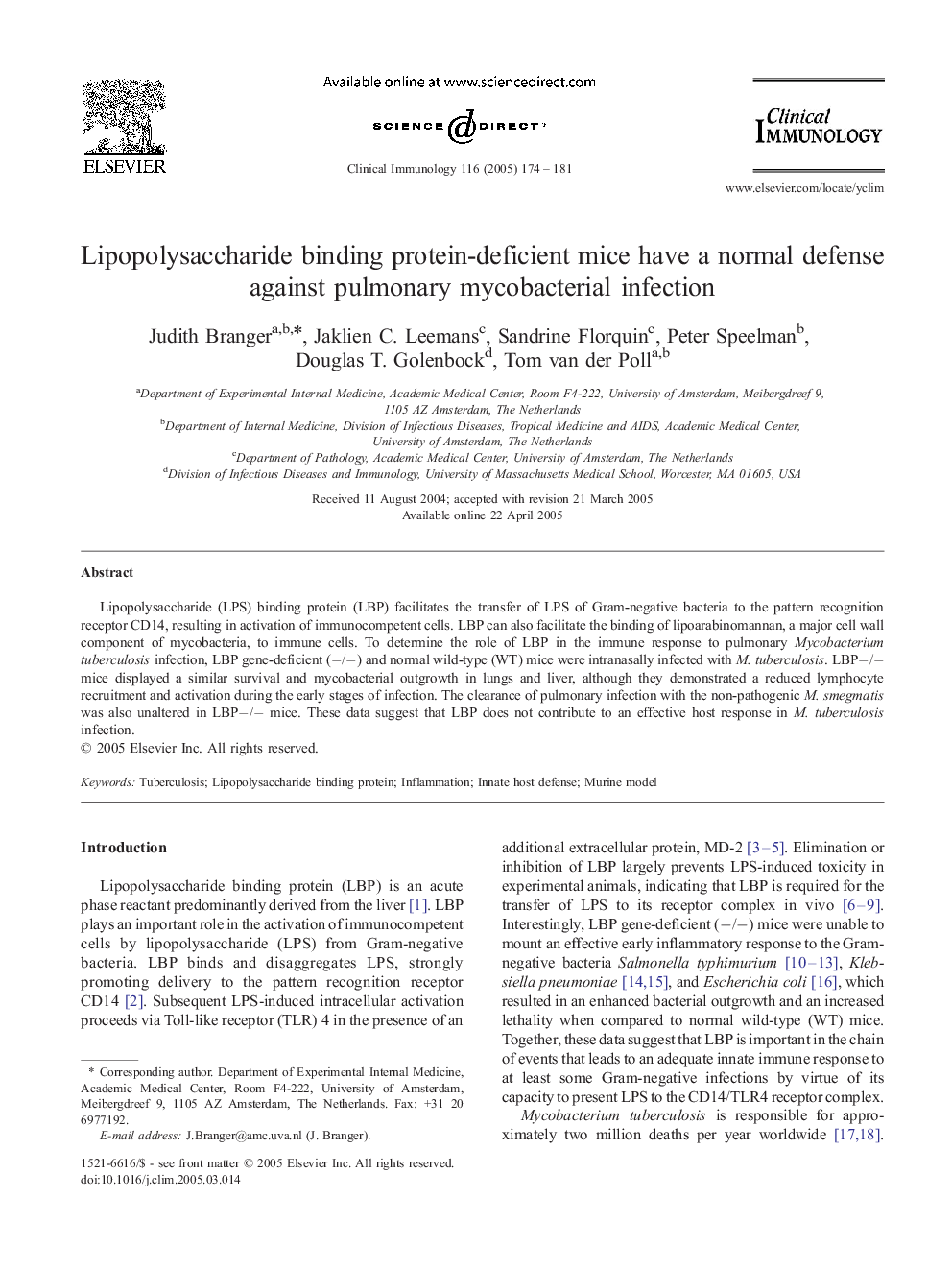| Article ID | Journal | Published Year | Pages | File Type |
|---|---|---|---|---|
| 9236531 | Clinical Immunology | 2005 | 8 Pages |
Abstract
Lipopolysaccharide (LPS) binding protein (LBP) facilitates the transfer of LPS of Gram-negative bacteria to the pattern recognition receptor CD14, resulting in activation of immunocompetent cells. LBP can also facilitate the binding of lipoarabinomannan, a major cell wall component of mycobacteria, to immune cells. To determine the role of LBP in the immune response to pulmonary Mycobacterium tuberculosis infection, LBP gene-deficient (â/â) and normal wild-type (WT) mice were intranasally infected with M. tuberculosis. LBPâ/â mice displayed a similar survival and mycobacterial outgrowth in lungs and liver, although they demonstrated a reduced lymphocyte recruitment and activation during the early stages of infection. The clearance of pulmonary infection with the non-pathogenic M. smegmatis was also unaltered in LBPâ/â mice. These data suggest that LBP does not contribute to an effective host response in M. tuberculosis infection.
Related Topics
Life Sciences
Immunology and Microbiology
Immunology
Authors
Judith Branger, Jaklien C. Leemans, Sandrine Florquin, Peter Speelman, Douglas T. Golenbock, Tom van der Poll,
